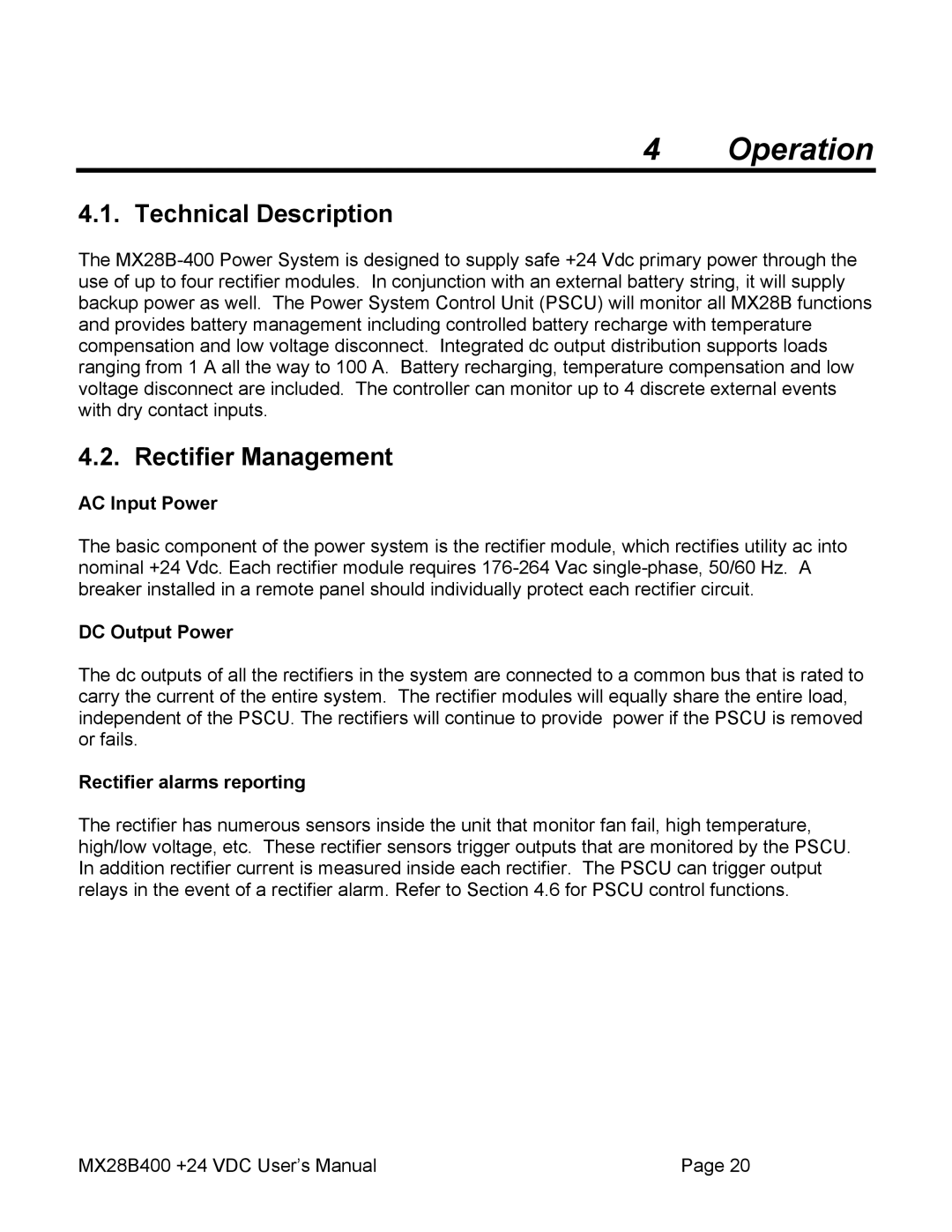4 Operation
4.1. Technical Description
The
4.2. Rectifier Management
AC Input Power
The basic component of the power system is the rectifier module, which rectifies utility ac into nominal +24 Vdc. Each rectifier module requires
DC Output Power
The dc outputs of all the rectifiers in the system are connected to a common bus that is rated to carry the current of the entire system. The rectifier modules will equally share the entire load, independent of the PSCU. The rectifiers will continue to provide power if the PSCU is removed or fails.
Rectifier alarms reporting
The rectifier has numerous sensors inside the unit that monitor fan fail, high temperature, high/low voltage, etc. These rectifier sensors trigger outputs that are monitored by the PSCU. In addition rectifier current is measured inside each rectifier. The PSCU can trigger output relays in the event of a rectifier alarm. Refer to Section 4.6 for PSCU control functions.
MX28B400 +24 VDC User’s Manual | Page 20 |
